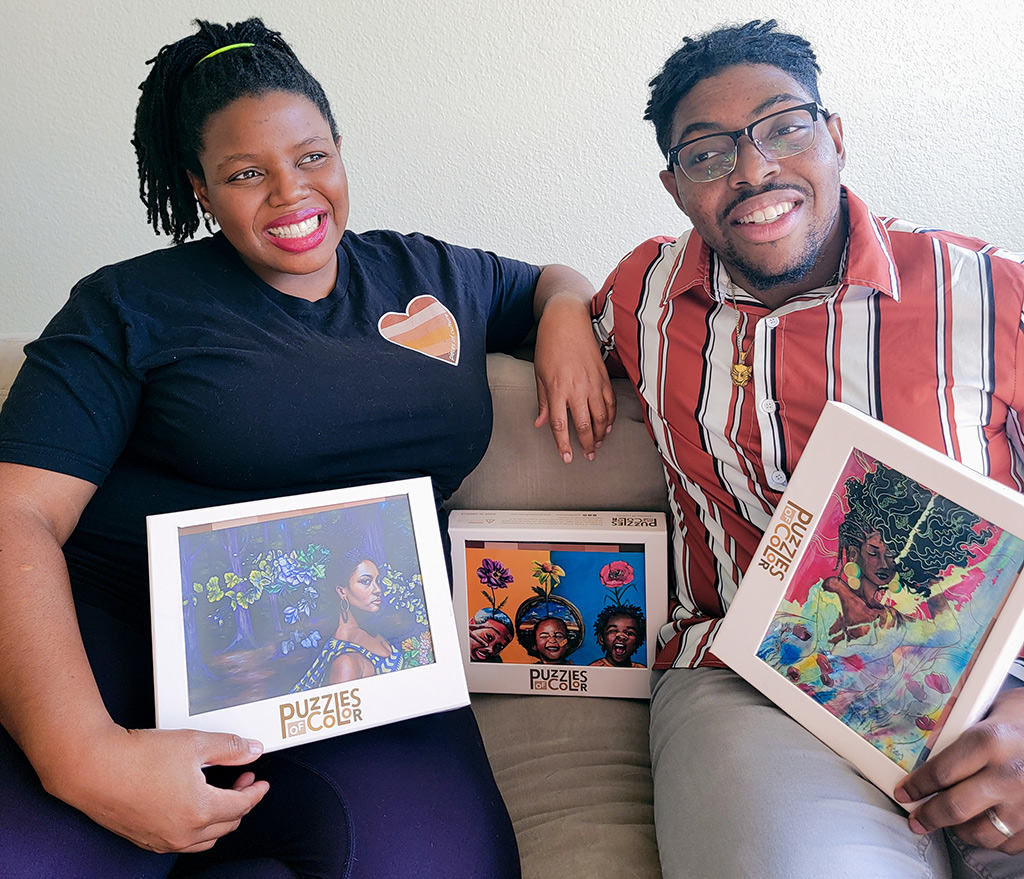
by TAMI MURPHY, marketing manager, GPI
Welcoming BIPOC-owned companies requires action and collaboration.
For the Black, Indigenous, and People of Color (BIPOC) community, what does it mean to bring diversity and inclusion (D&I) into the toy and game industry? The answer is both simple and complicated: It takes many parties working together to level the playing field.
Retailers need to be committed to filling their shelves with products from BIPOC-owned businesses while traditional financial institutions need to support their growth. The research institutions that monitor the industry need to collect data on the purchase of toys, games, and puzzles by the Black community, and manufacturers, fulfillment centers, and retailers need to work closely with BIPOC-owned businesses to understand their financial hurdles and the full timeline and payment schedule of bringing a new product to market.

“We don’t need more mentors, what we need is capital,” explained Amanda Wilson, founder of A+X Puzzles, during a very candid and honest conversation about the hurdles she was facing securing funds to manufacture puzzles, even though she was in a possession of a large purchase order (PO) from Target.
Wilson’s comment weighed on the GPI leadership team, as we have spoken for years about the lack of diversity in our industry. After becoming aware of the financial hurdles that BIPOC-owned businesses face, we decided to take action.
It is not enough for mass retailers to support BIPOC-owned businesses if other players aren’t supporting the entire process. If a new company can’t fund the production of its toys and games to fulfill a retail order, that PO is useless.

Daedrea Fenwick, founder of Kulture Karaoke, agrees that financing is her biggest hurdle. “It is more difficult to find investors as a woman of color. Especially angel investors, since a one-product gaming company is not best-suited for most venture capitalists,” she says.
When launching her hip-hop and R&B-inspired card game, Fenwick discovered that her company was disqualified from many traditional loans due to its age and a lack of consumer data. Ericka Chambers and William Jones, the sibling founders of Puzzles of Color, hit the same roadblock with their bank when they were looking to fund production to fulfill a PO.

“We have a hard time providing proof of concept because there is not a lot of data on the market that we are trying to reach — families of color — so that certainly factors into the funding decisions,” Chambers says.
Fenwick says that the lack of data continues to be a problem since games designed specifically for the Black culture are still a relatively new concept.
“Outside of the larger one, Black Card Revoked, most [games] have not reached the level of success that would show true market potential,” she says.
Typically, inventory manufactured overseas needs to be fully paid for before the factory will release goods for shipment. That can be a hefty price for a new company when factoring in post-production freight and warehousing costs. Additionally, the vendor doesn’t receive the revenue from a mass retailer PO until 60-90 days after the product is delivered to its warehouse. This means — in the best-case scenario — the initial production payment is made 100 days before delivery to the warehouse and the sales revenue from the retail chain will be received months later.
To ease the pressure, GPI launched a Mass Market Manufacturing Program that provides extended payment terms on the production of goods to fulfill a company’s mass-market POs.
We work with clients and their distributors to determine when payment from the retailer will be made and then we write the terms of payment for their manufacturing to fit that time frame. By tailoring their terms to the entire PO process, our customers can accept these POs and grow their businesses.
GPI’s new initiative can make a difference, but without other businesses in and adjacent to our industry helping, we are just a small wave in a big ocean.
Now is the time to turn talk into action and commit to working with new businesses to assess their strengths, identify where they fit into the ecosystem, and help eliminate hurdles to welcome full D&I in the toy and game industry.
This article was originally published in the 2022 Innovation & STEM issue of The Toy Book. Click here to read the full issue! Want to receive The Toy Book in print? Click here for subscription options!


